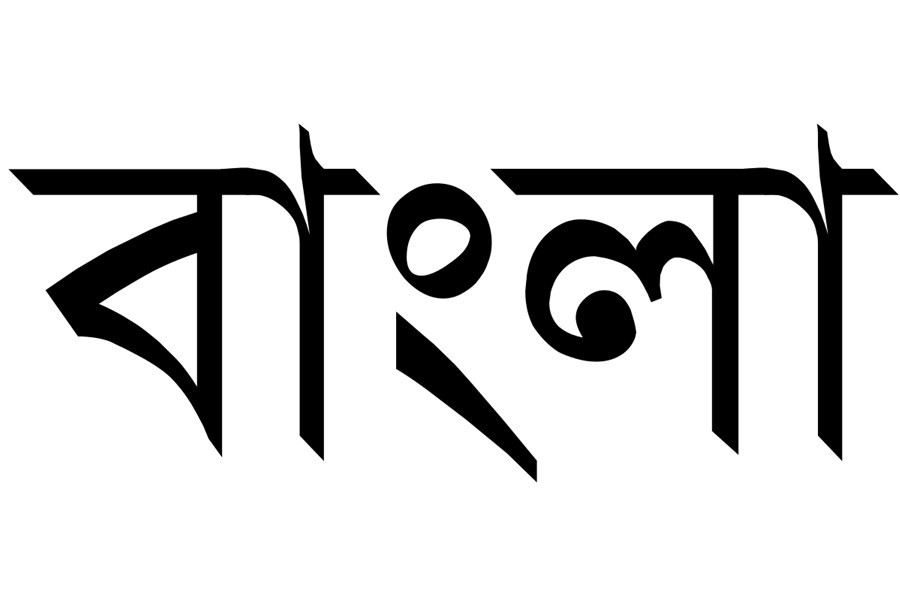Bangladesh set before the world a unique example of popular demonstration for recognition of mother tongue seven decades ago. Before the country's independence was earned through the 1971 liberation war, its patriotic people had consecrated the occasion of February 21, 1952 by shedding blood in protest against making Urdu as the state language of non-Urdu-speaking populace.
In hindsight, history-loving minds may regret the impact of Ekushey (21st) February. It could have been much greater than observance of the day and holding a month-long book fair. Despite the large size of Bangla-speaking population, it is yet to secure a similar status of languages such as French, Spanish, Russian, Arabic and English and dominance of its literature on the world scene.
The decline in appeal for Bangla among the natives or a lack of its progress has been exposed by this time. There is a shortage of vocabularies in Bangla dictionary and technical, scientific and business terms of foreign languages are barely developed. This is notwithstanding the fact that the country boasts a Bangla Academy. We're losing many regional dialects that have higher depth and stronger expression.
Some public speakers are often heard pronouncing Bangladesh as 'Bangla(d)esh' and some others abroad as 'Bang-la-dash'. One group doesn't bother about standard pronunciation while the other tries to imitate pronunciation of English speakers who cannot pronounce it or do not show enough respect for Bangla words.
The command of the Bangladeshis of the widely spoken foreign language they love most is below global average. Bangladesh is ranked between 63rd and 71st among 100 non-English-speaking nations in English Proficiency Index in recent years. The arrangement for learning other prominent languages is not great either. Otherwise, why would the Bangladeshi migrants struggle linguistically and culturally in those countries?
New generations may ask if the language movement was aimed at only opposing Urdu and also any other foreign language.
After independence, a gentleman from a sub-divisional town urged the government, through a newspaper letter, to remove English language and literature as an academic discipline. When asked to comment on such a demand, a Dhaka University professor was then quoted to have said, "The gentleman is not perhaps aware of the fact that the world is slightly bigger (larger) than his home town."
Complacency is something that sometimes stops us from expanding our horizon, especially of knowledge and innovation. Of late, some stakeholders feel, as reported, the Bangla Academy, which was founded to promote Bangla language and literature, has failed to meet expectations in recent decades.
Language veteran Abdul Matin told this scribe 25 years ago that he said 'no' to the statement in 1948 for making Urdu as the only state language, "without understanding the consequence of such an act". Shamsul Haque and Oli Ahad had made political arguments in favour of Bangla, during their encounter with Pakistan's Governor General Muhammad Ali Jinnah.
Salaam, Barkat, Rafiq, Jabbar--- all embraced martyrdom not to bow down their head to the ill motive of the rulers. That kind of determination was reflected in 1971 and also during the movement for democracy in 1990.
Thus, Ekushey February is known to be the spirit of not giving up. Nowadays, however, the slogan - Ekush mane maatha nato nakora (21 means not to bow down) - has been something that people seem to be unwilling to repeat. When mourning at one point in history turns into a driving force, a fountainhead of a nation, the occasion becomes sacrosanct. Nations around the world go back to the spirit of salvation or revolution while setting the stage for future, be it for democratic norms, laws, or social cohesion.
Thus past leaves a treasure---one that is meant for men and women of subsequent generations. In the 21st century, the United Nations has recognised the sacrifice of Bangladesh people by declaring February 21 as the International Mother Language Day. But are we carrying forward our lessons, protecting the treasure and creating new resources accordingly for the posterity?


